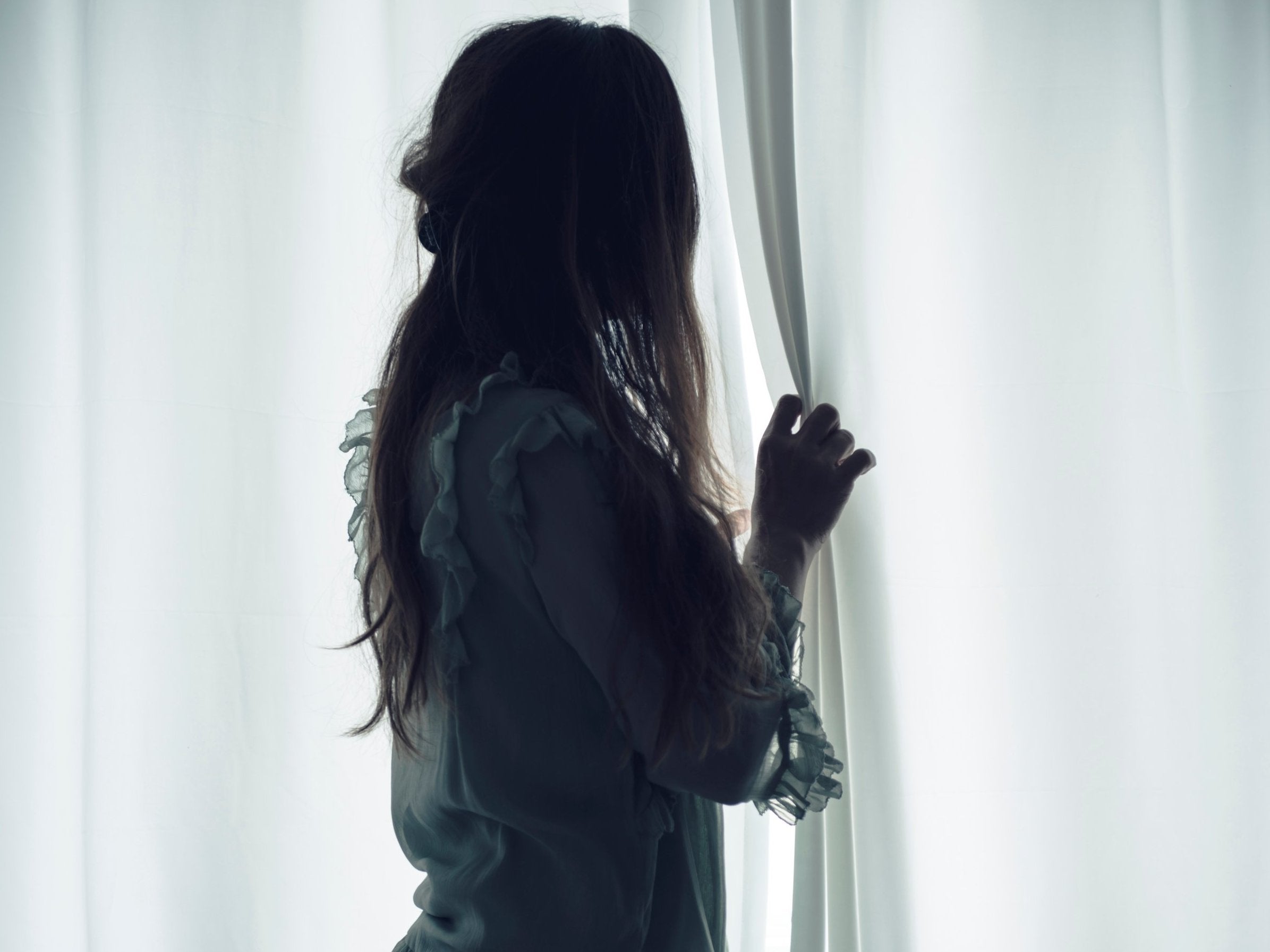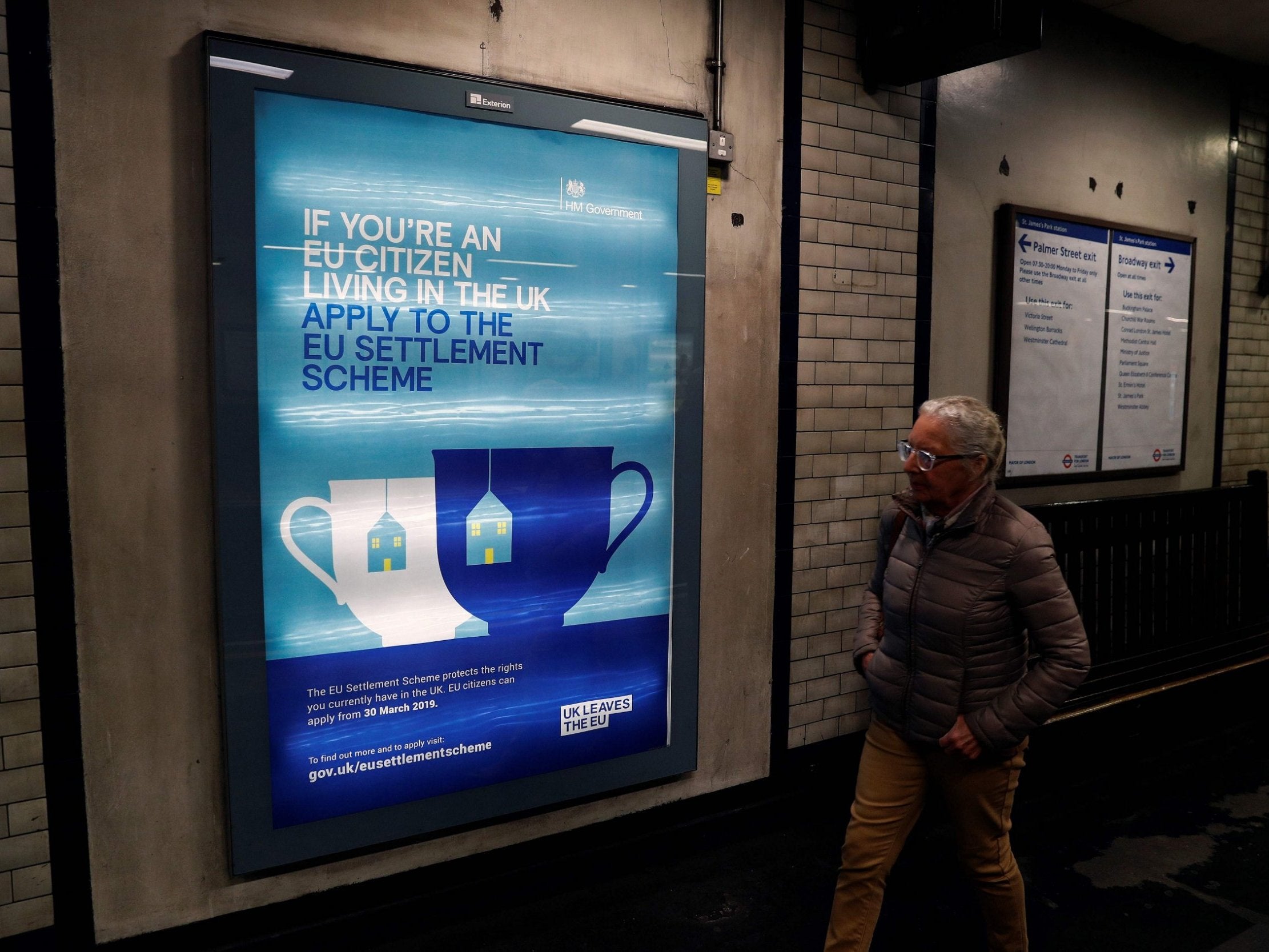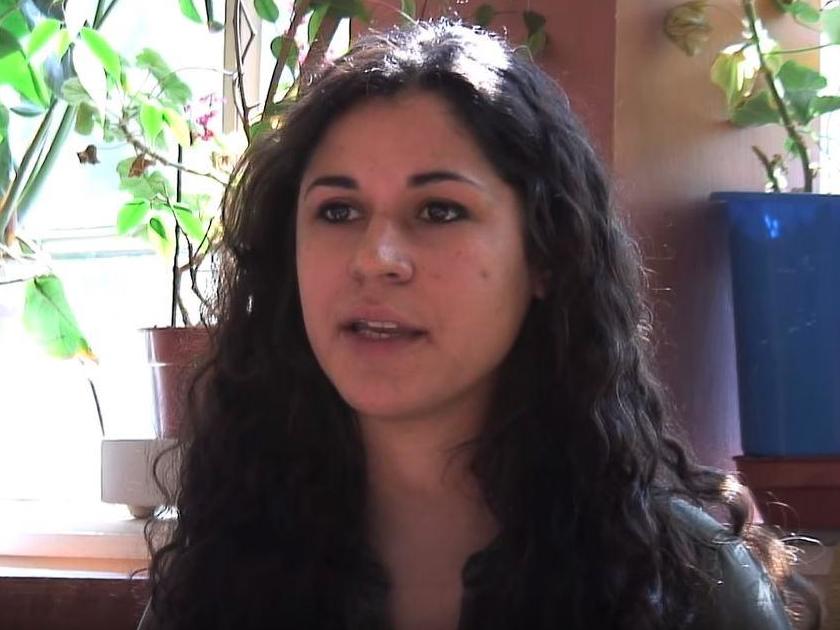Settled status scheme could be putting domestic abuse victims at risk
The Home Office launched its EU settlement scheme at the end of March, but the application process leaves some non-UK citizens in a particularly vulnerable position. Emily Goddard reports


Hidden in a carrier bag, under a pile of rubbish sacks at the bottom of Victoria Silva’s* husband’s wardrobe, sit the documents that held the power to determine whether she had a future in the UK after Brexit. Silva has non-UK dual EU citizenship and has lived in the UK for more than a decade, but with no evidence of her own to prove it, she needed to access the paperwork to secure settled status.
But that was never going to be easy and her husband “would be very, very frustrated” if he found out that she had secretly accessed those vital documents. “He [her husband] thinks I don’t know where he hides the papers, but I know where everything is,” the 52-year-old says. “Taking them was very scary. I took everything and had to put it all back in the same position so he wouldn’t notice.”
After more than 25 years of marriage, Silva and her husband recently separated. They have a teenage daughter together and things were not always bad, but the last decade of their relationship was marred by merciless emotional and psychological abuse. Silva was cruelly prevented access to food and had to eat in secret. Her husband was against her learning English and would frequently mention her nationality to torment her about being deported. The taunting, she says, was another form of manipulation that made her fearful of deportation and she was unaware until last year that she had the right to apply to remain in the country.
“I didn’t know that I had the right and he made me believe I didn’t have the right,” Silva explains. “He used to make jokes that I was African and that he and my daughter were the European ones. He would always say he’d call the Home Office. I was also very ill and he used to say to me that I needed his signature to access NHS care. He said to me, ‘I’m going to let you die, I’m not going to sign to let you have access to treatment’.”
The psychological trauma Silva endured saw her slip into a deep depression and she was signed off from her job as a cleaner. She was unable to eat and lost 15kg in weight in two months. “I was disappearing, physically disappearing,” she says.
The most difficult mistreatment to endure, though, was when Silva’s husband used their daughter “as a weapon of abuse”. “I was afraid I’d be deported and my daughter would not be with me,” she says. “He said he’d make the application depending on my behaviour. I had to behave according to his requests or he wouldn’t sign the documents I needed.”
It’s not a question of just a few isolated cases: we estimated that over 50,000 EU citizen women had experienced domestic abuse in the past year, using data from 2017
Silva, as a victim of domestic abuse, is among those who fall into one of the vulnerable groups highlighted in a report by the Oxford University-based Migration Observatory on the impact of Brexit and applying for settled status.
The settled status scheme was rolled out nationwide at the end of March to allow EU, EEA or Swiss citizens and their family who have been living in the UK for five years to apply to continue living in the country after 30 June 2021. The roughly 4 million people who will need to apply have until at least 31 December 2020 to complete the process. More than 400,000 already have, the Home Office said earlier this month.
However, the Migration Observatory’s “Unsettled Status? Which EU Citizens are at Risk of Failing to Secure their Rights after Brexit?” report warns that applications may be especially difficult for certain people. They include elderly migrants, children in care, victims of trafficking and those who are already vulnerable or have reduced autonomy, such as people who rely on a partner for evidence. A “potentially significant” number of people may also not be aware that they can and need to apply.
Equally, the scheme could be “particularly problematic” for non-EU citizen family members in abusive relationships seeking settled status because they cannot qualify in their own right, but only as a result of their relationship to a qualifying person.
“While for most people gaining settled status should be very straightforward, some people will find the process more difficult,” explains Madeleine Sumption, director of the Migration Observatory. “One of the key vulnerable groups our research identified is victims of domestic abuse, including people stuck in controlling relationships. This is particularly problematic when they rely on their partners for evidence that they are living here. It’s not a question of just a few isolated cases: we estimated that over 50,000 EU citizen women had experienced domestic abuse in the past year, using data from 2017.”
Ondina Alves*, 40, understands only too well the complexities of navigating the settled status application process as someone relying on an abusive partner for evidence of her long-term residence in the UK. She moved to London from Portugal for work in early 2013 with her husband, who subjected her to both physical and psychological abuse.
Like Silva’s, Alves’s husband uses her immigration status as a means of hounding her with the threat of deportation. “He was telling me all the time I was dependent on him for his immigration status,” she says as she holds their cooing baby boy. “I still am. He was very manipulative because I am totally dependent on the documents. He became very proud of it and used that to make things more challenging.”

Alves’s husband has been granted settled status but she is completing the application and waiting to submit evidence. The process has meant, however, that she has had to have contact with her husband, who she is now separated from, to ask for the documents she needs – this has been considerably challenging.
“The application is not difficult, asking my husband for the documents is the difficult part,” Alves explains. “I have to find the time when his mood is OK, which is not all the time. I need to speak to him to ask him and sometimes I have to listen to things that are not so good for me. I still have a sense of depending on him and he uses that to tell me things [that cause distress].”
In addition to the trauma of having to have continued contact with the perpetrator of abuse, she is also anxious that she will not be granted settled status because of discrepancies in the papers her husband has to prove they have lawfully lived in the UK for at least five years. An immigration advisor has told her it is not guaranteed that she will secure settled status after completing the application. “The issue is,” she says, “that he was not formally working for five consecutive years and, even though he has got settled status, the Home Office will need to look at everything again and they might look at his history and decide differently.”
Some of the most vulnerable people in our communities will be unable to apply and will lose their legal right to be here, exposing them to further victimisation at the hands of the government’s hostile environment
Lucila Granada, director of the Latin American Women’s Rights Service (Lawrs), works on the front line supporting victims of domestic abuse. Her organisation has been supporting both Silva and Alves, as well as other women, including EU nationals with Spanish, Italian and Portuguese citizenship and Latin American nationals with a family member visa. She often witnesses the barriers women suffering domestic violence face when accessing the settled status scheme and is pushing for changes in the evidence that can be accepted when making an application.
“When women are in the situation of domestic violence, the perpetrator usually controls all the documentation,” Granada says. “So a lot of these women will not have sufficient evidence. That’s why we’ve been advocating for other forms of evidence to be accepted as supporting evidence for the process. One of them is documentation from accessing services like ours. The Home Office might be accepting information from refuges but the number of women with no recourse to public funds, including Bame women, EU nationals and women with family permits, who will be able to be in a refuge will be minimum. It’s going to put a lot of women at a disadvantage. We are concerned perpetrators will delay getting their own settled status to extend the time that they are in control of their victims. This is already happening.”

The Home Office says many applicants will be able to demonstrate their UK residence using its data matching with HM Revenue and Customs and the Department for Work and Pensions. Where this is not possible – if they have not been working or claiming benefits, for example – they can use other documentation, including utility bills, tenancy agreements, records from healthcare providers or evidence previously submitted as part of an earlier application under EEA regulations or another immigration route.
The government says it will also consider any alternative evidence that someone can provide, with this approach applying to family members relying on their relationship to an abusive partner too. Further provisions are in place for those unable to present a passport or identity card for “compelling practical or compassionate reasons, or due to circumstances beyond their control”, the Home Office adds.
Sajid Javid, the home secretary, announced earlier this month that £9m of funding is being given to 57 organisations across the country to provide practical support to vulnerable, marginalised or at-risk people completing applications to protect their status as the UK prepares leaves the EU. The organisations include disability and homeless charities and community groups helping an estimated 200,000 people.
The government also agreed last month to make changes to the settlement scheme to enable “more proportionate and fairer decision making” following a legal claim by the Joint Council for the Welfare of Immigrants (JCWI). The amendments to the Home Office’s guidance to caseworkers should benefit vulnerable citizens, including elderly people, those with mental health problems and those who are economically inactive.
A Home Office spokesperson said: “Victims of domestic abuse will be eligible for status under the EU settlement scheme, including where their marriage to or civil partnership with an EEA citizen resident here has ended. We’re making sure the scheme is accessible to and capable of handling vulnerable applicants with flexibility and sensitivity. We’re also enlisting the help of organisations who have expertise in working with victims of domestic abuse. Domestic abuse is a devastating crime that shatters the lives of victims and families, and the government is committed to tackling it.”
However, Zoe Gardner, policy advisor at JCWI, says the out-of-court settlement with her organisation will not really have any particular impact on people in domestic violence situations. She maintains that the government’s decision to force non-UK citizens to apply for settled status will likely put that vulnerable group of people at “serious risk”, with gaining access to the required documents – which may be controlled by the perpetrators of abuse – potentially putting people in “grave danger”.
There is, Gardner says, also the threat of being unable to apply under the settlement scheme, with serious consequences. “Some of the most vulnerable people in our communities will be unable to apply and will lose their legal right to be here, exposing them to further victimisation at the hands of the government’s hostile environment,” she says. “Instead of this application system, all EU members of our society should be granted the automatic right to stay.”
Sumption, of the Migration Observatory, agrees that people in abusive relationships becoming undocumented is a very real possibility. “If victims of abuse miss the deadline for settled status, the default policy position is that they become irregular migrants with no rights to work or access to basic services like the NHS,” she says. “The government is aware of this problem and has said that people who miss the deadline can still be granted settled status where there is a ‘good reason’ for not having applied. Nonetheless, there’s a risk that vulnerable people who have missed the deadline will be too fearful to come forward.”
Happily, that is one worry Silva no longer needs to contend with – she recently received a letter confirming full settled status. She has been through so much hardship but she beams when she thinks about the life she will soon lead now that she is no longer dependent on her husband to remain in the country she calls home.
“Now I have hope in the future,” she says. “I thought at some point it was the end of the line for me. I plan to learn English, be a volunteer, I’m planning to go back to do the things that I had thought were not for me anymore. It’s going be very difficult because I feel like a baby, I don’t know how to read, write or speak the language at the moment, I have to learn everything from the beginning. It will be challenging but I’m ready for it.”
*Names changed to protect identity
Join our commenting forum
Join thought-provoking conversations, follow other Independent readers and see their replies
Comments